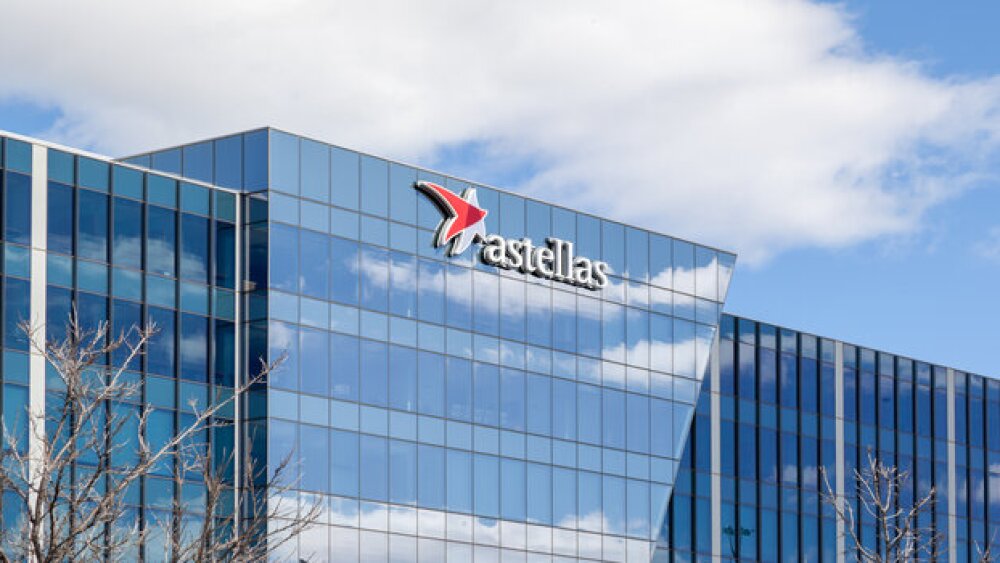The company is hoping the topline results for Veozah, which won FDA approval in May, will support health technology assessments for reimbursement negotiations in Europe.
Pictured: Astellas U.S. headquarters in Illinois/iStock, JHVEPhoto
Astellas on Thursday announced positive Phase IIIb trial results for Veozah (fezolinetant), an oral, nonhormonal treatment for moderate to severe vasomotor symptoms such as hot flashes and night sweats due to menopause.
In May 2023, the menopause drug received FDA approval for treating moderate to severe symptoms. Astellas said in Thursday’s announcement that the late-stage results “will support health technology assessment and reimbursement dossiers throughout Europe.” The data were presented on Thursday at the 15th Congress of the European Society of Gynecology in Amsterdam.
According to Astellas, the study reached the main objective of showing a statistically significant reduction from the baseline in the frequency of moderate to severe vasomotor symptoms (VMS) to week 24 against a placebo. Adverse events occurred in less than 5% of the over 450 patients, the most common being headaches and COVID-19. The patients investigating the drug were considered unsuitable for hormone therapy.
“DAYLIGHT is the first 24-week placebo-controlled efficacy study for fezolinetant. Astellas is committed to advancing innovative science, and these data provide further affirmation to healthcare providers of the positive impact fezolinetant can have on reducing the frequency and severity of VMS, as well as sleep disturbances over a longer period of time” Marci English, vice president and head of biopharma development at Astellas, said in a statement.
Astellas initially announced the positive topline results of the trial in June 2023 but gave no detailed numbers at the time.
Thursday’s data readout showed that for the primary endpoint of the mean change from baseline in the frequency of moderate to severe VMS, the 45-mg dosage of the drug had a reduction of -1.93, giving a value of p<0.001. The secondary endpoints of mean change from baseline in the moderate to severe VMS severity and patient-reported sleep disturbance had reductions of -0.39 and -2.5, respectively. Both secondary endpoints had a value of p<0.001.
“The statistically significant reductions observed over the 24 weeks demonstrate the potential fezolinetant has to help women who are experiencing VMS due to menopause yet cannot or choose not to take hormone therapy,” Rossella Nappi, professor of obstetrics and gynecology at the University of Pavia, said in a statement.
Astellas acquired fezolinetant when it bought Belgium-based Ogeda in a 2017 deal valued at up to $853 million.
Bayer’s elinzanetant, a late-stage investigational dual neurokinin-1,3 receptor antagonist acquired as part of a $875 million buyout of KaNDy Therapeutics in 2020, is currently in clinical development for the treatment of VMS associated with menopause. However, Astellas beat Bayer in becoming the first-in-class non-hormonal option.
Tyler Patchen is a staff writer at BioSpace. You can reach him at tyler.patchen@biospace.com. Follow him on LinkedIn.






